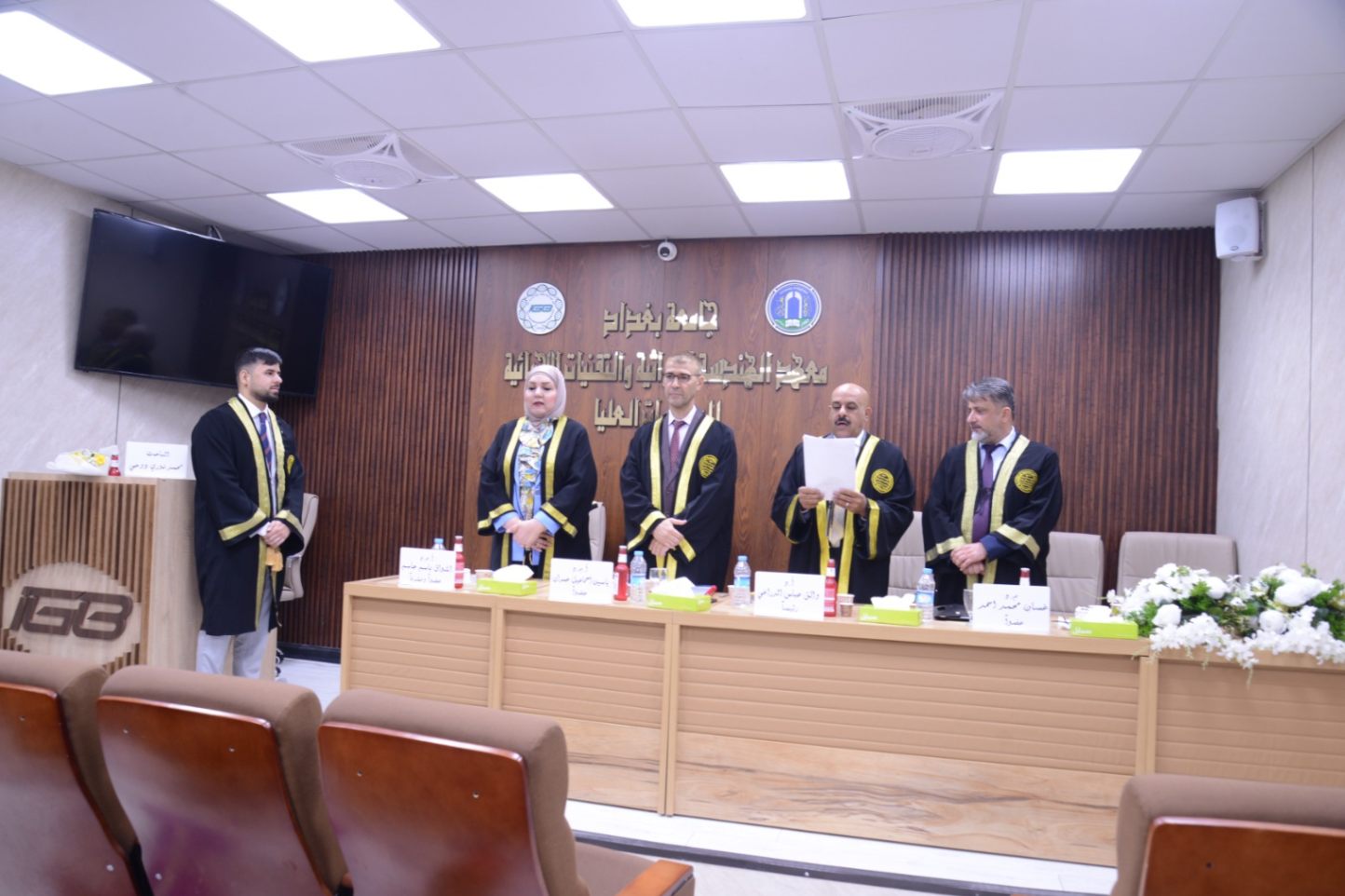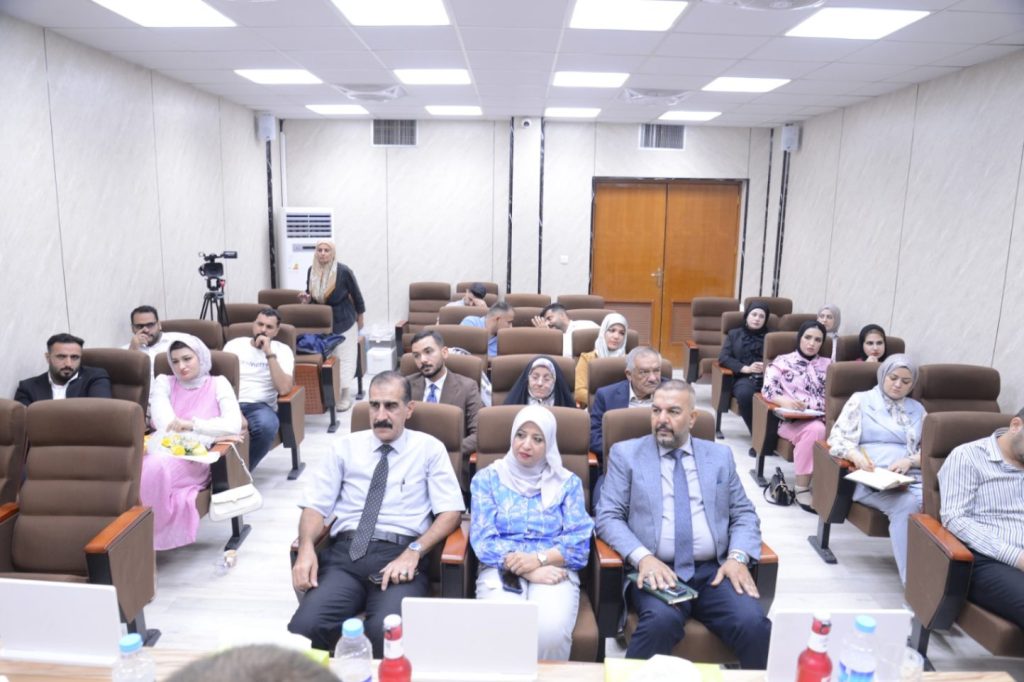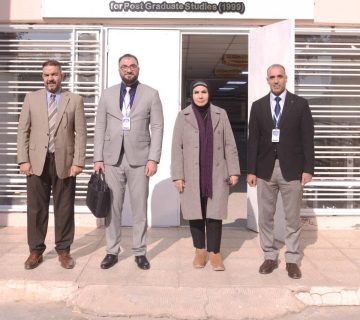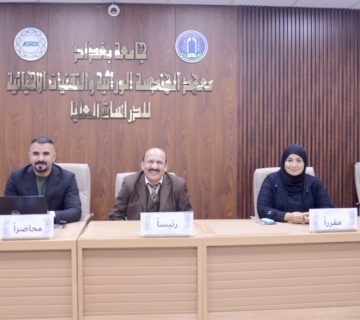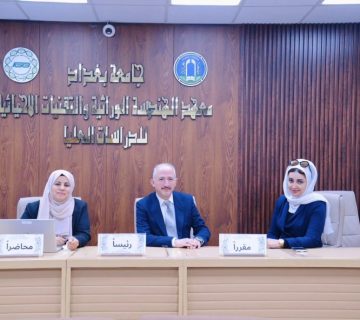The Institute of Genetic Engineering and Biotechnology for Postgraduate Studies at the University of Baghdad discussed the Master’s thesis of the student Mohammed Noori Duhi, entitled: “Molecular Diagnosis and Genetic Sequencing of Fluoroquinolone Resistance Genes and Antibiotic Resistance Patterns of Enterococcus Bacteria Isolated from Clinical Samples in Babylon, Iraq,” supervised by Assist. Prof. Dr. Ashwaq Basim Jasim.
The study aimed to isolate and identify Enterococcus faecalis and Enterococcus faecium from various clinical samples using conventional methods, as well as to perform antibiotic susceptibility testing by the disc diffusion method (Kirby–Bauer method) to detect fluoroquinolone-resistant bacteria. Molecular detection of antibiotic resistance genes (ParC, ParE, GyrA, and GyrB) was also conducted.
During the study, DNA sequencing was performed for the ParC, ParE, GyrA, and GyrB genes responsible for fluoroquinolone resistance in some Enterococcus isolates.
The study recommended the need for further research to isolate Enterococcus species from additional samples collected from different hospitals, to continue monitoring bacterial resistance to antibiotics—especially fluoroquinolones—and to investigate other mechanisms that cause resistance to this class of antibiotics.
It also recommended establishing public policy initiatives to reduce the misuse of antibiotics and to prevent the development of drug-resistant bacteria.
The study emphasized that physicians and healthcare workers must be fully aware of antimicrobial resistance and avoid random prescribing practices.

